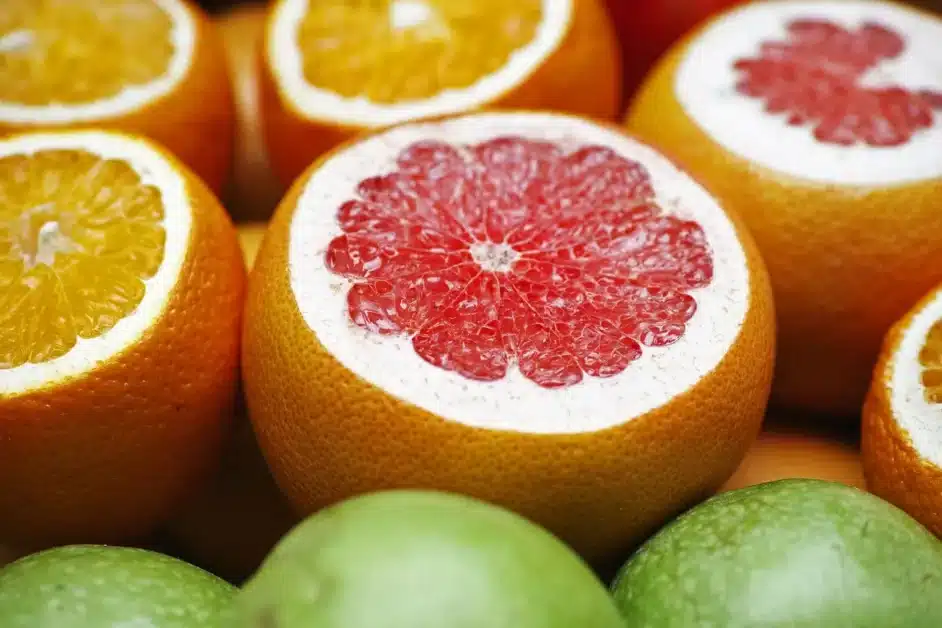Growing healthy citrus trees requires more than just sunshine and water—it depends heavily on choosing the right citrus fertilizer for your soil type. Citrus plants have unique nutritional demands, and when matched correctly with soil composition, fertilizer can dramatically improve yield, fruit size, and overall plant resilience. This guide explores how soil type, pH, and regional conditions shape fertilizer needs, with expert insights into practical solutions and top-performing formulations like Yarafert products.
Matching Citrus Fertilizer with Sandy vs Clay Soils
The first step in selecting the best citrus fertilizer is understanding how different soil textures affect nutrient availability. Sandy soils, with large particles, drain water rapidly but hold fewer nutrients. Clay soils, on the other hand, retain water and nutrients but can suffocate roots if not well-managed.
To optimize citrus growth:
- Sandy soils: Require frequent applications of balanced citrus fertilizer with slow-release nitrogen to prevent leaching. Biofast (12-12-12 + 24% humic and fulvic acids) is especially effective because organic matter improves retention of nutrients and moisture.
- Clay soils: Benefit from fertilizers that improve aeration while preventing nutrient lock-up. Products like SULFOMIX, with high sulfur (11%) and a broad spectrum of micronutrients, can help balance excess alkalinity often found in clay-heavy soils.
A practical rule is to apply smaller, more frequent doses in sandy soils, while heavier soils can support larger but less frequent applications.
How pH Levels Affect Citrus Fertilizer Choice
Soil pH directly influences how well citrus trees absorb nutrients. For citrus trees, the ideal soil pH ranges between 6.0 and 7.0. Outside this range, essential nutrients like iron, zinc, and phosphorus become less available.
When pH drifts too high (alkaline conditions), iron deficiency often causes leaf yellowing. In such cases, fertilizers enriched with micronutrients like iron (Fe) and manganese (Mn) are essential. SULFOMIX, with 6% Fe and 2% Mn, addresses this problem effectively.
For acidic soils, calcium-based solutions such as CALCIMAG (22% CaO, 15% N, and 3% MgO) not only raise pH but also strengthen fruit quality by improving peel thickness and reducing splitting.
To maintain optimal conditions, integrate corrective fertilizers:
- Low pH soils: Apply CALCIMAG or blended products with calcium carbonate.
- High pH soils: Use sulfur-rich solutions such as Ugarit K-T-S 70 (36% K?O, 70% SO?) to gradually acidify the root zone.
Soil Testing Tips Before Choosing Citrus Fertilizer
Before committing to a citrus fertilizer plan, conducting soil testing is essential. A comprehensive soil analysis reveals nutrient levels, texture, and pH, guiding precise fertilizer selection.
Key testing tips include:
- Sample at root depth: Collect soil samples from 20–40 cm deep, where citrus roots actively feed.
- Test at different times: Early spring and post-harvest are ideal periods for assessment.
- Evaluate micronutrients: Beyond N-P-K, track secondary elements like magnesium, boron, and sulfur, which directly affect citrus fruit quality.
- Use professional labs: Home kits can indicate pH, but lab tests reveal detailed nutrient balances.
With the data, growers can match soil needs to the most efficient citrus fertilizer formulation. For instance, if potassium is deficient, Ugarit 0-5-65 (65% K?O) offers a targeted boost, while multi-nutrient blends like Ugarit 27-27-27 + TE provide balanced nutrition where several deficiencies exist.
Blended Citrus Fertilizer for Complex Soil Conditions
Not all soils are uniform, and many growers face a combination of sandy and clay patches within the same orchard. For such cases, blended citrus fertilizer options are the most practical solution.
Balanced formulations like Ugarit 25-25-25 + TE and Ugarit 27-27-27 + TE are designed to deliver consistent results regardless of soil variability. These blends ensure trees receive adequate nitrogen for growth, phosphorus for root development, and potassium for fruiting—plus trace elements critical for citrus tree resilience.
Additionally, organic-rich options like Ugarit 10-0-5 + 70% organic matter provide soil conditioning benefits, improving aeration in clay while enhancing nutrient retention in sandy soils.
By integrating such products into a tailored schedule, growers can reduce the risk of under- or over-fertilizing different zones.
Region-Specific Citrus Fertilizer Considerations
Citrus fertilizer needs are also shaped by climate and regional factors. A citrus grove in arid conditions requires different formulations than one in a humid subtropical climate.
Arid and Semi-Arid Regions
- High evapotranspiration accelerates nutrient loss.
- Fertilizers with higher potassium, such as Super DKP (30% P?O?, 60% K?O), strengthen drought resistance and improve water-use efficiency.
Humid, Rainy Regions
- Leaching of nitrogen and micronutrients is common.
- Products like SULPHOMIN (45% N with 15% sulfur and 25% organic matter) help maintain steady nitrogen supply while improving microbial activity.
Coastal Regions
- Salt buildup from irrigation water can harm citrus roots.
- Sulfur-based products such as Sulforex 80 + S (80% elemental sulfur) help displace sodium and improve soil structure.
Region-specific strategies ensure citrus fertilizer application aligns with environmental realities, protecting long-term productivity.
Example Table: Matching Fertilizer with Soil Needs
| Soil Type / Condition | Recommended Product | Key Benefits |
|---|---|---|
| Sandy soils | Biofast (12-12-12 + humic & fulvic acids) | Improves nutrient retention |
| Clay soils (alkaline) | SULFOMIX (multi-micronutrient suspension) | Corrects deficiencies |
| Acidic soils | CALCIMAG (CaO + MgO) | Adjusts pH, improves peel |
| Potassium-deficient soils | Ugarit 0-5-65 | High K?O for fruit quality |
| Saline coastal soils | Sulforex 80 + S | Sodium displacement |
Conclusion: Choosing the Right Citrus Fertilizer
Selecting the best citrus fertilizer isn’t about a one-size-fits-all solution—it’s about aligning fertilizer formulations with your soil type, pH, and regional conditions. Whether working with sandy soils that need organic-rich blends like Biofast, or clay-heavy soils that benefit from micronutrient-rich products like SULFOMIX, growers must match product to soil science for the best results.
Yarafert’s wide portfolio—from balanced blends like Ugarit 27-27-27 + TE to specialized options such as CALCIMAG and Sulforex—offers reliable solutions for every soil challenge.
? Ready to optimize your citrus orchard? Explore our full range of citrus fertilizer solutions today, contact our expert team for tailored recommendations, and give your citrus trees the balanced nutrition they deserve.

